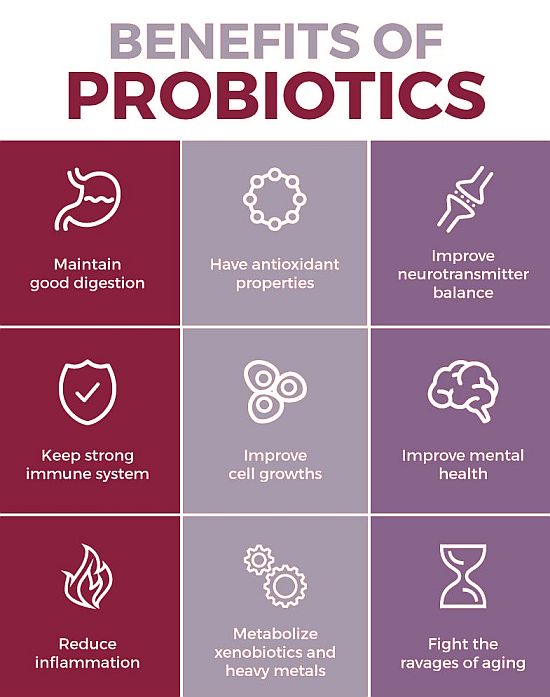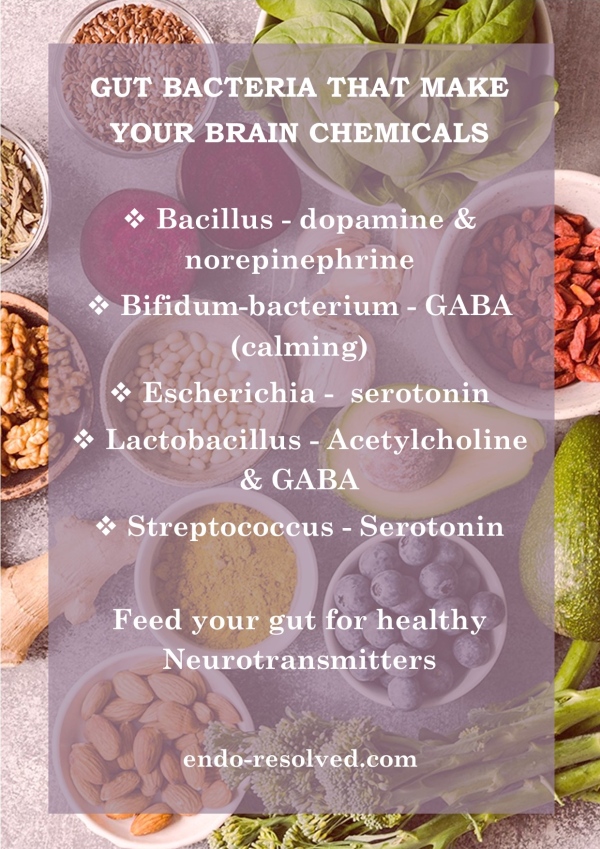Probiotics help for endometriosis
Probiotics
are beneficial bacteria that are found in certain foods and supplements. Healthy gut bacteria can become upset by
taking anti-biotics or taking drug treatments or pain-killers on a regular
basis. Therefore, it can be really good for
your gut as well as your general health to supplement with probiotics to re-balance
your system. This is especially relevant for those who have taken many pain killers to try and quell their pain of endometriosis.
Probiotics have many health benefits both for physical health and mental health. If you take a regular course of probiotics, they can help restore the natural balance of your gut bacteria.
Interestingly, gut health has been connected to mental well-being. Studies have found supplementing with Bifidobacterium and Lactobacillus strains for 1–2 months can improve anxiety, depression and memory. Also probiotics may help improve the immune system especially as most of the immune system is generated in the gut. Certain probiotics have also been shown to promote the production of natural antibodies in the body.

Gut bacteria and endometriosis
Recent research suggests that imbalances in gut bacteria may trigger or worsen endometriosis by altering estrogen levels.
Research on monkeys with endometriosis has shown that when compared to the healthy control group, they showed a significant lack of the probiotic lactobacillus, a ‘good’ bacteria, and significantly more ‘bad’ bacteria such as salmonella and e.coli.
Monkeys with endometriosis also showed a significant increase of intestinal inflammation than compared to their healthy counterparts in the control group. Although research is not yet conclusive, there seems to be a link between gut health and the occurrence or severity of the disease.
This endometriosis sufferer gained a lot of relief from her endometriosis by adding probiotics to her supplement regime. She found that taking a double dose of probiotics for part of the month and by including serrapeptase and Nattokinase she saw great results.
 Neurotransmitter production supported by probiotics
Neurotransmitter production supported by probioticsGut bacteria that help to make brain chemicals (Neurotransmitters)
The following strains of healthy gut bacteria help to make certain neurotransmitters in the gut, which are then utilised by the brain and affect mood, sleep and the central nervous system
- Bacillus - dopamine and norepinephrine
- Bifido-bacterium - GABA (calming)
- Enterococcus - Serotonin
- Escherichia - Norepinephrine and Serotonin
- Lactobacillus - Acetycholine and GABA
- Streptococcus - Serotonin
Dopamine
Dopamine plays a role in pain processing in multiple levels of the central nervous system and is also well know as the neurotransmitter that helps control the brains reward and pleasure centre. Low dopamine levels are associated with stiff and achy muscles, tremors and impaired fine motor skills like seen in Parkinsons
Norepinephrine
The general function of norepinephrine is to mobilize the brain and body for action. Norepinephrine release is lowest during sleep, rises during wakefulness, and reaches much higher levels during situations of stress or danger, in the so-called fight-or-flight response.
Serotonin
Serotonin (also known as 5-hydroxytryptamine or 5-HT) is a naturally occurring substance that functions as a neurotransmitter to carry signals between nerve cells throughout your body. Serotonin is found mainly in the digestive tract, and is made from tryptophan which is obtain through diet in foods such as nuts and cheese. Serotonin regulates depression, anxiety and helps to heal wounds. Interestingly, serotonin is often responsible for causing nausea. Serotonin is also responsible for regulating the sleep cycle.
GABA
GABA is a major calming neurotransmitter and plays an important role in behavior, cognition, and the body's response to stress. Research suggests that GABA helps to control fear and anxiety when neurons become overexcited. Lower-than-normal levels of GABA in the brain have been linked to depression, anxiety, and sleep disorders.
Suggested supplementing of probiotics
There are many different probiotic supplements available. Interestingly, acidophilus and bifidus are beneficial to help expel estrogen by changing the molecules into a form that can be excreted from the body. They also decrease estrogen recycling in the intestines by limiting the growth of unhealthy bacteria.
The bacteria of Lactobacilli seems to play a key role in restoring a healthy gut balance. One small study found the probiotic strain Lactobacillus gasseri to significantly reduce the total weight and surface area of endometrial implants in female mice.
The exact reason for this is unknown. Researchers believe that L. gasseri may increase levels of a cytokine called interleukin-12, which has been shown to reduce growth of endometrial tissue.
Human studies are needed to know the best probiotic strains and doses for endometriosis. In the meantime, supplementing with a probiotic complex with various strains will help to improve your gut health and support your immune system.

About the Author
Hi, I am Carolyn Levett, the Founder here at endo-resolved - I am an Integrative Health Coach having studied nutrition, naturopathy and aromatherapy as well as being a published author of three endometriosis books. I used to suffer from severe endometriosis and was fortunate to be able to regained my health and recover from this disease with the support of nutrition, natural therapies and lots of determination.
My motivation is to help other women with endometriosis to heal their bodies so they may start to overcome this awful disease without having to totally rely on toxic drugs and surgeries which can cause further damage - with healing thoughts, Carolyn.
References:
Endometriosis and intestinal microflora in monkeys - academic.oup.com
New probiotics for endometriosis health - Pubmed
https://www.sciencedirect.com/science/article/abs/pii/S0006899318301501
https://www.psychologytoday.com/us/blog/neuroscience-in-everyday-life/201908/gut-bacteria-can-influence-your-mood-thoughts-and-brain
https://pubmed.ncbi.nlm.nih.gov/29903615/
 As featured in:
As featured in:




